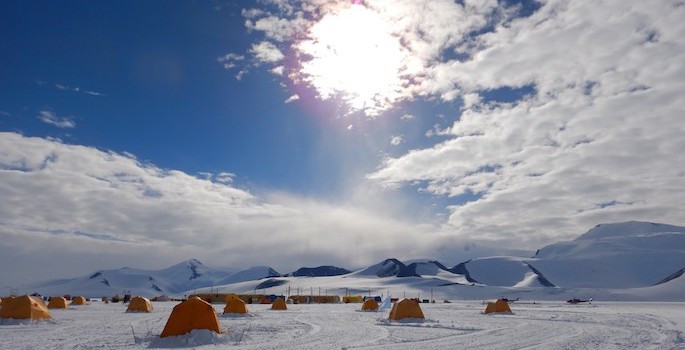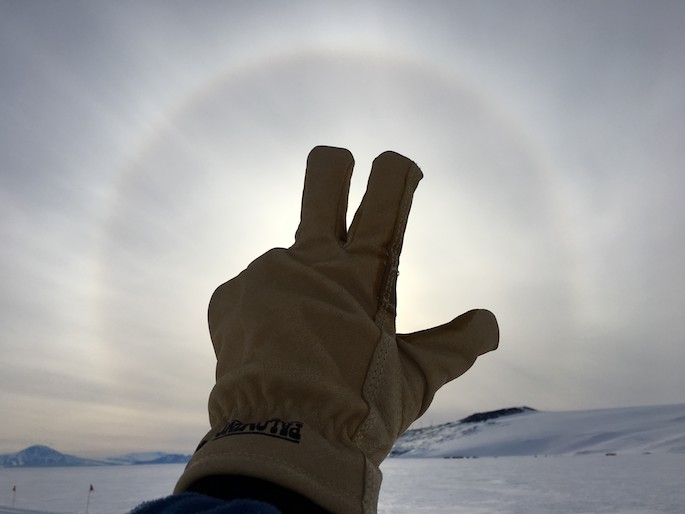by Amy Wolf
Vanderbilt professor Dan Morgan and undergraduate Andrew Grant are taking immersion to an extreme, trekking all the way to Antarctica.
“We’re hunting for the oldest ice that anyone’s ever found,” said Grant.
A small crew spent more than a month living in tents far beyond Antarctica’s McMurdo Station, in the remote trans-Antarctic mountains, studying ice and how it has changed over hundreds of thousands of years.
“I’m really interested in climate change and how it actually impacts the ice,” said Morgan, senior lecturer in earth and environmental sciences. “Then we examine the record that that ice leaves on the landscape because it plays a really important role in how Earth’s systems function.”
The researchers used a special tool to drill deep into the frozen tundra and bring back to campus samples of ice, rock, gas and possibly frozen creatures.
“Ice is a really good record of what was happening on Earth in the past,” Morgan said. “It collects air bubbles of what the atmosphere was like and the chemistry of the water that makes up the ice changes due to temperature.”
Ninety percent of the world’s ice is in Antarctica.
Once in a lifetime experience
Grant, a St. Paul, Minnesota, native and earth and environmental sciences major, said he was ready for an extreme hands-on experience.
“The more I thought about it, the more I wanted to kind of disconnect from technological society for a bit and do something that’s meaningful,” said Grant.
Morgan has undergrads help plan the research trip, prepare for field work, collect samples and then analyze the samples back in the lab.
“We need the next generation to start thinking about Antarctica,” Morgan said. “Get invested and care about how it fits in to the Earth’s system and what an important role it plays in shaping how our Earth may change in the next few hundred years.”

Silent night
Beyond the research, Grant says the landscape of Antarctica itself and the unbelievable stillness will always stay with him.
“We were in austral summer, so the sun was up 24/7,” said Grant. “It was surreal if you woke up in the middle of the night.”
But the absolute quiet definitely took him out of his comfort zone.
“The first couple of nights camping away from the larger base camp we were little freaky because it was so completely quiet and we’re so used to sound,” Grant said. “If it was windy and no one was walking around, it was so silent that you could just hear your heart beating in your ear. Definitely an experience I’ll never forget.”
